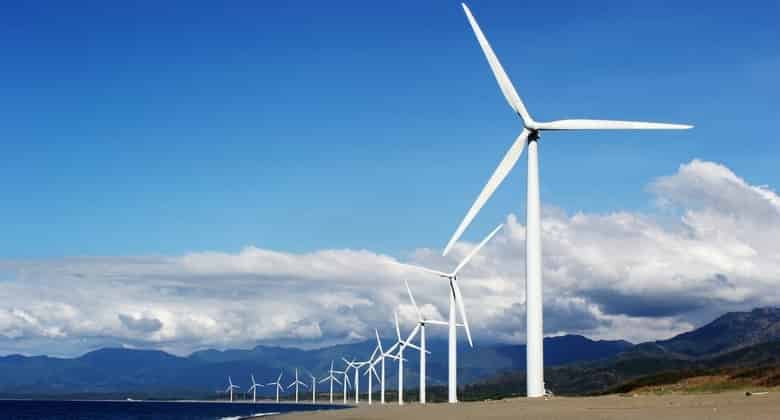The Alfredo Wagner Online newspaper transcribes Raphael Monteiro’s article about the false advertising involved with the propagated clean energy. The author proves that it is not that clean and could be a big problem in the near future. Raphael Monteiro publishes financial information on his website to “show not only the importance of the international diversification of his investments, but also the danger involved in maintaining all his assets within Brazil.” Concluding his presentation: “If you value your work, your family and your assets, you are outraged by the corruption and disregard for the laws in our country and you feel robbed by inflation and taxes, this site will be immensely valuable . ”
What no one talks about the famous clean energy
When I started this site in 2014, the objective was to talk about something that nobody talked about, which was investing abroad. At the time, a lot of people were really against taking the money from Brazil, because here were the “best opportunities”. Time passed and it became clear to everyone that this criticism was unfounded. It is clear to everyone that investing outside of Brazil is not only good, but fundamental for financial security.
We arrived in 2021 and recently I wrote two articles with a point of view that does not usually appear in other media. The first is about identifying the root of the Brazilian problem and the second is about the ESG fad.
ESG: O que é? Vale a pena investir?
Much is said about thinking outside the box, but what I have noticed is that people’s thinking is increasingly homogeneous. If you decide to dig deeper and discover that the thing is not quite as they say, you end up being attacked and labeled as radical.
As I do not care about these things, it is time to touch the hornet of clean energy, another fad that they try to sell as the supreme sum of the development of civilization.
It is not quite like that.
What is clean energy?
First, it is good to make some concepts clear.
Clean energy is energy obtained from sources that do not release air pollutants, while green energy is energy derived from natural sources (sunlight, wind or water). There is a subtle difference between these two types of energy, although they are often said to be the same.
Renewable energy is energy generated from sources that are constantly replenished. These renewable energy resources are not exhausted, unlike fossil fuels and gas. It includes wind and solar energy.
An easy way to remember the differences between these different types of energy is:
Clean energy = clean air
Green energy = natural sources
Renewable energy = recyclable sources
Forcing the clean energy bar
As already discussed in the ESG article, clean energy, which should be something natural, with the research and development of new energy sources, ends up becoming something political and used for other purposes. We are trying to sell clean energy as something more noble than fossil fuels, which would be “destroying the planet”.
Humanity has spent millennia making use of animal energy, both for transportation and for activities that required strength. It was only at the end of the 17th century and beginning of the 18th that the steam engine was developed and started to be used for various tasks, increasing productivity. In the 19th century, the use of steam locomotives started the revolution in the transport sector.
At the end of the same century, the work of several scientists culminated in the advent of electricity. This new form of energy has spawned a new development boom. At the same time, studies on oil and its derivatives have largely contributed to a second transportation revolution.
If the twentieth century was the century with the greatest production of wealth in history, this was due to the development of different forms of production, transmission and storage of energy. It is difficult to find any technology developed in the last 100 years that has not been dependent on it.
And everything was done on the basis of natural development. A lot of people researching, making discoveries and applying it in practice. This is easily noticed in engines and fuels. There are specific fuels for aviation (aviation gasoline and kerosene), for automobiles (diesel and gasoline) and for ships (diesel). Each being used for its own purpose.
In general, technological evolution is due to the adoption of something better, cheaper and more efficient and not for secondary reasons, as has happened now. We try to push down everyone’s throat to such a question of “carbon neutral up to 2 thousand and so on” or “not using fossil fuel up to 2 thousand and so much”.
In other words, the natural development of better energy technologies than the current ones is not expected, but a change is being made based solely on the emission of carbon in the atmosphere.
The other side of the coin
Proponents of clean energy are 100% focused on the CO2 emission generated at the time of energy consumption, but they forget what happens in the entire chain involved in their production.
The first thing is that there is no renewable energy . All machinery used in energy production needs to be built by extracting minerals from the soil. Millions of tons of primary materials are mined continuously from mines around the planet each year.
The indirect impact of clean energy in some numbers:
- An electric car contains more cobalt than 1,000 smartphone batteries
- A wind farm propeller has more plastic than 5 million smartphones
- A solar power plant uses more glass than 10 million smartphones
- The production of an electric car battery requires the extraction and processing of 226 tons of ore
- Oil, natural gas and coal are needed in the production of concrete, steel, plastic and minerals used in the production of clean energy
- If the current goals are reached in 2050, the amount of spent and unusable solar panels will be double the plastic waste produced today
It is clear that they are selling clean energy only based on the moment of consumption. There is no pollution or smoke in a solar “farm” or in a wind farm. They just forget that to get there, there was a lot of “outsourced” pollution in the supply chain. There is no plastic without oil. There is no iron without mining.
Not to mention the fact that the number of different chemical elements used in the manufacture of all this structure linked to clean energy is much greater and the mines are located in different parts of the planet. There is greater complexity and a high logistical cost to have access to them.
Magnetic materials, for example, are essential for the production of electric vehicles. The magnets used to run the electric motors are made with rare materials like neodimium and disprosium. These materials are usually deposited together with radioactive materials such as thorium. Separating these materials requires a large amount of carcinogenic components such as sulfate, ammonia and hydrochloric acid. Processing a ton of rare material can produce up to 2,000 tonnes of toxic waste.
Dependence on these materials also generates another type of dependency, which is precisely on producing countries and holders of reserves. Today, China is responsible for 90% of the production of rare materials in the world, in addition to holding the largest reserves. It can thus control the distribution and price of various metals, as has happened before. To depend on China is something that no country wants.
Conclusion
Solar panels and wind farms can appear very sustainable when viewed superficially. In fact, there is a large complex production that generates environmental damage that many prefer to hide.
Obviously nothing against these new types of energy production. What is not correct is to put them on a pedestal and tarnish the image of fossil fuels as being the great villains of the planet.
It should come as no surprise to anyone that when politicians decide to invent a problem and try to create a solution to it, there are a number of side effects that can be greater than the initial “problem”.
Technological evolution must follow its natural path. Every new technology that proves to be better ends up being adopted, regardless of the political will or modinhas of occasion. Wanting to reverse this logic is by no means sustainable.



